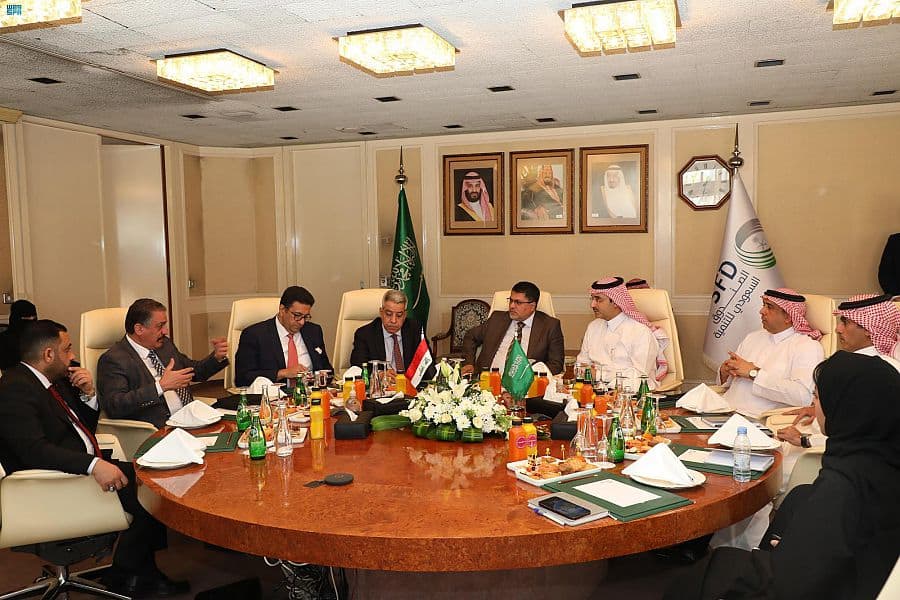RIYADH – Saudi Arabia is making significant efforts to improve the business environment, attract foreign investment and create private-sector employment, said James Swallow, Commercial Director of PRO Partner Group, referring to the New Companies Law that came into effect on January 19 this year.
“These initiatives, combined with governance and labor market reform, have made doing business easier, increased the number of industrial facilities, and increased the participation of female labor force,” he added.
The Kingdom issued a new Companies Law (the New Companies Law) in 2022, which governs all types of entities in the Saudi market, whether commercial, non-profit, family-owned and/or professional, under a single comprehensive law.
“We anticipate that the recently updated Commercial Company Law will improve business conditions for foreign businesses by providing a strong framework within which to operate, creating more opportunities for small and medium-sized businesses as well as multinational corporations,” Swallow told TRENDS.
The implementing regulations for the New Companies Law were formally issued by the Ministry of Commerce (MoC) on January 18, 2023.
The new law includes high flexibility to protect companies and empower the private sector in a way keeping pace with best international practices. It also brings down the statutory requirements and procedures for small, medium, and micro companies and simplifies the requirements and procedures for establishing companies.
Moreover, the law removes many restrictions at all stages, including establishment, engaging in business, and exiting the market, as well as restrictions on company names, and allows the limited liability company to issue debt or negotiable financing instruments.

The law modified the provisions of transformation and merger between companies, allowing the company to be divided into two or more companies and allowing the owners of individual entities to transfer their assets to any company.
A huge interest
Since the Effective Date of the law, there has been considerable interest from companies to come and operate and invest in Saudi Arabia.
“With the efforts being made by the Kingdom and expanding support for businesses of all sizes, investment is inevitable. As a result, we see considerable interest from our clients in programs such as The Small and Medium Enterprises General Authority (Monsha’at program), which aims to connect small and medium enterprises with government and financiers. Interestingly, this program may also offer options for larger clients who maintain a smaller footprint in Saudi,” Swallow said.

Saudi Arabia is expected to surpass the UAE in receiving foreign direct investment in 2023 for the first time since 2012, as both nations continue to be significant beneficiaries of the inflow of funds, according to the Lumina Cross-Border insights report.
The report showed that FDI into Saudi Arabia and the UAE hit record highs with $40 billion in 2022, showing a rise of 58 percent over the previous year.
Swallow said that foreign companies wishing to operate in the Saudi market can do so through the MISA (Ministry of Investment KSA) platform, which allows for 100 percent foreign ownership. However, to enable the establishment of operations, the company must use an entity with a track record of profitable operations in the same field as required in the Kingdom.
Additional regulations will be required depending on the company’s activity, and the various Saudi government authorities will impose requirements and registrations for them to do business in the Kingdom.
“It is recommended that companies seek professional guidance from a Saudi Corporate Service Provider to ensure they are set up correctly, compliantly, and can import and mobilize staff and operate on the ground,” he said.
Empowering the private sector in the Kingdom is of significant importance for economic growth and stability.
The country’s economy grew 8.8 percent in the third quarter of 2022 compared to the same period a year earlier. Oil-related activities increased by 14.2 percent year-on-year in the third quarter. Still, GDP growth was also boosted by a 6 percent growth in non-oil activities, according to the General Authority of Statistics. Overall, the non-oil private sector contributed 50.7 percent to the GDP, and the Kingdom expects to post a second consecutive budget surplus in 2023.
According to Swallow, the Saudi market is still relatively unsaturated compared to some of the Kingdom’s neighboring GCC countries.
Thus, he emphasized that most industries in the Kingdom, such as information technology, healthcare and sciences, agriculture, transportation and logistics, tourism, culture and entertainment, and education, have massive investment opportunities. They have experienced significant growth in recent years and are expected to continue.








